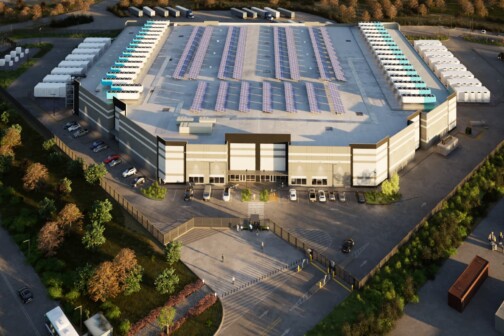Once a silent topic, it has been encouraging to see the construction industry’s enhanced focus on mental health. We have become more open to discussing the challenges that are faced, adept at recognizing the signs of stress, and critically focused on reducing the suicide rate within the construction industry.
Construction has the 2nd highest rate of suicides among all occupations, four times higher than in the general population. Earlier this year, McCarthy launched our Genuine Care campaign to help partners better manage self-care and spot signs of distress in others.

But what about the intersection of DEI and Mental Health?
Often when diversity, equity, and inclusion work is discussed, there is a focus on legally protected characteristics like race and gender. However, the work touches more than visible layers of identity and is much more nuanced. Nestled within the risk factors for a mental health crisis are feelings of isolation, physical or emotional pain, and concerns around sharing an authentic representation of current struggles.
As DEI practitioners, we are acutely aware of the need for authenticity, candor, and connection. Done well, DEI work is an integrated practice—where multiple layers of the organization are skilled at driving inclusion. All leaders should proactively create and maintain employee connections, reduce incidences of emotional distress, and coach teams to fully embrace coworkers who may need to take time away for self-care or more involved medical care.
Psychological Safety
Dr. Amy Edmondson describes psychological safety as the belief that one will not be rejected or humiliated in a particular setting or role. This is a climate where people feel free to express work-relevant thoughts or feelings.
Team psychological safety is characterized by trust and respect. So not only is it increasingly important to continue the dialogue around global mental health risk factors, but we must also introduce the impact of bias-motivated events on mental health and psychological safety. From microaggressions to more direct occurrences of bullying or harassment, each compromises trust and respect and ultimately physical and psychological safety in our offices and on our job sites.
The Predictive Index lists nine signs of low psychological safety. While the list is not exhaustive, it can kick off discussion around designing culture shift interactions:
- Teams avoid difficult conversations and hot-button topics.
- Limited disagreements or differing points of view.
- Employees don’t ask many questions during meetings.
- Employees don’t feel comfortable owning up to mistakes or place blame on others when mistakes are made.
- Meetings or discussions are dominated by leadership.
- Feedback is infrequent.
- Teammates do not support others or do work beyond their roles and responsibilities.
- Employees do not ask one another for help when they need it.
- Employees only know each other within the context of work.
Partnering for better outcomes
What we know about mental health and the construction industry is that men are far more likely to face mental health challenges than women. Generally, men underreport mental health issues and are less likely to receive appropriate treatment, which can lead to substance abuse and suicide. Compounding that challenge is that minority men are less likely to seek treatment than white men.
For a better outcome, bring cross-functional teams together, including Communications, Human Resources, Safety, DEI, and Operations. Together, that team is more likely to create holistic and suited solutions to meet an employee’s cultural, social, or communication needs. Asking for feedback from someone who has experienced mental health challenges and is comfortable being involved in the process is also helpful.
A few words about self-care
Last year, I saw a post on just about every social media platform. It said:
You can be committed AND take time off.
You can be a good leader AND delegate tasks.
You can be consistent AND have an occasional “bad day.”
You can be a problem solver AND ask for help. You can be flexible AND prioritize family.
To be the best version of ourselves, we must prioritize our rest and wellness. Self-care also means knowing when you need to ask for help. Reach out to your doctor or leverage your employer’s EAP. Practices like Hurdle have therapists who place your culture and life experiences at the center of your therapy.
If you are someone you know is experiencing a mental health crisis or experiencing thoughts of suicide, call 1-800-273-8255 immediately.
Kamecia Mason is McCarthy’s Vice President, Diversity, Equity and Inclusion





